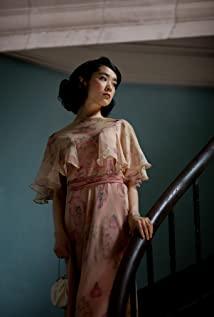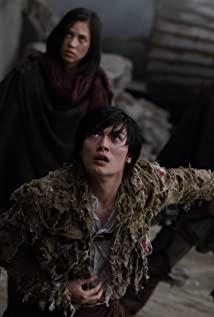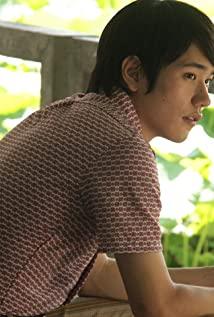But I don't know if it's lucky or unfortunate, I haven't read the original novel of this movie. I only see the lucky side. Because I have never seen it, it is not as unacceptable as the middle-aged and elderly people, and some people even leave the scene halfway.
The director is not Japanese, but he can capture the characteristics of Japanese narratives, that is, like taking a magnifying glass to observe the details of a flower, unfolding under the magnifying glass inch by inch, making one and a half hours like half a century, the rhythm is slow, and the inner monologue Delicate, fragmented and deep, the Japanese show love from a very special angle. Of course, you can fall in love with two completely different girls, bright or sad, but love is intertwined with sex, life, death and other heavy topics. It's only the Japanese who are not messy, right? This should draw the essence of the original novel.
But the director is never Japanese, not as meticulous and beautiful as the Japanese are in the handling of details, light and shadow. Of course, the selection of heroines has its own characteristics, and their personalities are basically appropriate, but as others joked, I know why I chose Mizuhara Kiko. It turns out that she looks like a Vietnamese (laughs), and the heroine is in the magnifying glass. It really doesn't look good, the skin is too bad, the outline is rough, and the occasional beauty of light and shadow is fleeting. Not only the choice of the protagonist, but also the choice of scenery, the large expanses of summer green, the large expanses of autumn wind, and the expanses of white snow are actually very rough and not beautiful, and sometimes they feel like a tough European landscape or tropical Vietnam. Projection of scenery? All in all, the Japanese landscape doesn't feel like this to me at all.
The male protagonist's clothing deliberately retains the style of the 1960s and 1970s, with tights and flared trousers, which are quite in line with the Hong Kong films and Western films of that era. As for the heroine's clothing and hair accessories, I pay attention to her hairpins every time Mizuko appears, all of which match the colors of the skirts or tops that appear, but basically they are all warm colors, red, colorful, it seems It was intended to be unified with the feeling that Midori gave to Watanabe. On the other hand, Naoko's clothes are more of floral, light colors, round neck, waist dress style. Although it is in the 1960s, it is quite consistent with the retro style that is blowing now. Is it a coincidence or a mistake?
In the end, the themes on which the entire film lives are reflections on life, death, love, and sex. The dead die and die, but the living live on. A sentence in the movie makes me think that the subtext is that love is colder than death. Before you die, please think about the harm that your death will cause to those who love you, which may last a lifetime. Watanabe and Naoko are suffering because of the death of a close friend or lover, and these pains are constantly looking for an outlet. Together, they may continue to hurt each other, continue to remember the pain, continue to be unhappy, or they may be able to walk out of the shadow of death and go to the sunny sky. How to go, no one can be a guide, it is all on their own Willpower, strong to explore. Watanabe firmly believes that everything will be better because of the idea that I like you, but Naoko can't get rid of all kinds of inner demons, and eventually his illness gets worse and he goes to death. I want to say that when you are particularly discouraged, if you don't know what to do, if you want to let go, if you want to pass sex or something else, it's all allowed, because as long as you live and go through this low point, You never know what lies ahead. If there is hope, it is a surprise. If there is no hope, since you have wanted to die before, and nothing worse has happened before, it will be better than now. The most precious thing in people is a kind of persistence and hope for the future.
There is also a saying in the movie, people, don't sympathize with yourself. Don't fall into self-pity. I think it is because I am too sympathetic to myself, it will magnify my tragic situation too much, and sometimes my emotions will be inextricable, especially sad emotions. We have been saying that we should be good to ourselves. In fact, people should not value themselves too much, but sympathize with themselves, that is, they are truly good to themselves. Keeping on watching and uncovering the scars will only make oneself heal more slowly, or even fall into self-harm.
It was Kawabata Yasunari that said it best. "If it is said that a flower is beautiful, then I will sometimes involuntarily say to myself: I want to live." Even if there is a trace of beauty, it is good to deceive ourselves. We all want to live, so I don't know if If you feel it, you will be able to get farther and farther away from the dead person, away from death.
PS, after reading it, I learned that I watched the public release version, that is, the abridged version. But I still think the lines and pictures are so explicit? ! Am I getting old. Fortunately, the old lady next to me is gone, and I am still here.
View more about Norwegian Wood reviews











